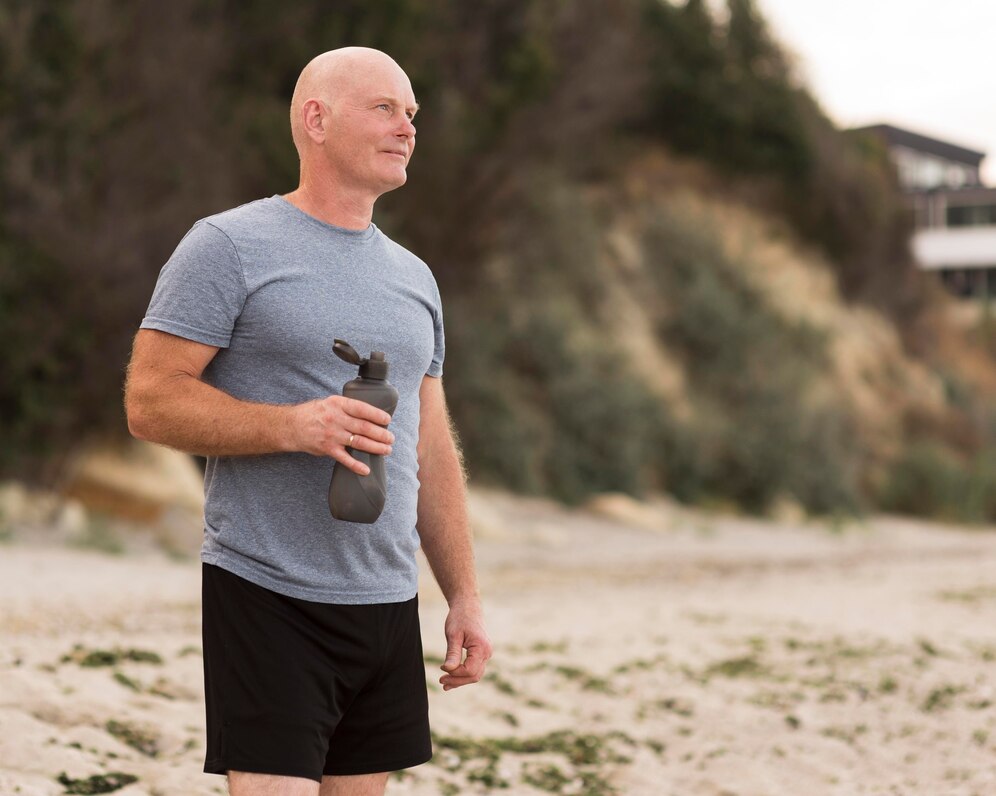TRT Testosterone — The Myth & Facts
Testosterone Replacement Therapy
This is one of the most common concerns I hear from men thinking about starting TRT:
“If I start, does that mean I have to be on it forever?”
Short answer: No
But that’s also not the full story either.
Let me explain how testosterone replacement therapy (TRT) works, why that concern exists, and how I approach this with my own patients.
Because if you’re even asking that question, you’re probably trying to make an informed decision about your health. And that’s exactly how it should be.
What People Say
When you introduce exogenous testosterone (meaning outside your body i.e. an injection of TRT), your natural production starts to dial back. That’s because your brain senses that you have enough testosterone floating around and stops signaling the testes to produce more. The same idea is true with countless other body systems. Your body loves to be not too much, not too little- Just the right amount of porridge. It’s a feedback loop, basic endocrinology.
So yes, while you’re on TRT, your natural testosterone takes a backseat.
The idea that you have to be on it for life comes from the reality that once that system is suppressed for a while, it doesn’t always bounce back quickly or easily. But that doesn’t mean it can’t. It just means you need to understand the tradeoffs and how to navigate the process.
What Happens If You Stop?
If you stop TRT suddenly, you’ll feel it.
Fatigue, brain fog, low libido, less pumps in the gym, maybe even some depression or anxiety. Basically all your symptoms before you started, will crop up again but feel more dramatic. That’s not because testosterone is addictive— it’s because your body’s production hasn’t ramped back up yet, and you’re basically running on empty.
In most cases, especially after long-term use, we use a specific protocol with medications like hCG or Clomid to stimulate your body’s natural testosterone production again. It always works, and I’ve never had a guy not produce the same or near the same levels as before. How quick does this natural production re-launch take? It depends on age, health, and how suppressed your system is, but most often 2-6 weeks.
So, you’re not locked in with TRT, you just need a smart exit plan if you decide to stop.
What I Tell My Patients about TRT Testosterone
TRT is a commitment—but not a prison sentence.
Most guys I work with don’t want to stop once they’ve seen the results. They feel better. They recover faster. Their sex drive, confidence, and energy come back. But I always have the conversation up front:
“If you ever decide to stop, we’ll do it the right way. I’ve got a taper plan, labs to monitor, and medications to support the transition. If you want to get pregnant we can keep you on your TRT, but let me know a few months in advance.”
Yes, you can concieve on TRT, and I have lots of guys in my practice who can vouche for that.
*Soap Box*
This is why there’s a HUGE difference between what you’ll find in some online clinics or bro gyms that just mail you vials with zero follow-up or counseling.
This is your endocrine system, not a supplement stack. You deserve more oversight than a shipping label.
Why Most Guys Do Stay on Long-Term
Because they want to.
After optimizing dosage, estrogen balance, and delivery method, TRT can make a night-and-day difference in how a man feels. But it’s more than just libido and muscle mass. It’s sleep quality, brain function, motivation, inflammation, insulin sensitivity, and cardiovascular health too.
A lot of guys who start TRT under my care tell me after a few months, “I didn’t even realize how bad I felt before.”
So yes, many choose to stay on it for life, but it’s not out of dependency. It’s because they want to protect the quality of life they’ve reclaimed.
Important: There Are Cases Where You Shouldn’t Start
This part doesn’t get talked about enough so I’ll take it head on.
If you’re still in your 20s and haven’t looked into the why behind your low testosterone, don’t jump on TRT just because your total T is 390 ng/dL. You might have a reversible cause. Stress, sleep apnea, insulin resistance, medications, trauma, or nutrient deficiencies can all play a role.
We always start with labs, symptoms, and a full picture of what’s going on. TRT is a great tool, but only when it’s the right tool.
For younger guys who want to boost T but preserve fertility or keep their axis active, there are non-TRT protocols I often prescribe things like enclomiphene, hCG, or even peptide-based therapies.
The Bottom Line
TRT testosterone is a tool. It’s not something you have to stay on for life, but many do because they feel better on it. You’re not locked in. And if you ever want to come off, there’s a safe, effective way to do it under medical supervision.
What matters most is that you go into it with real information and a provider who knows how to manage this properly not just dose you up and leave you hanging.
And if you’re on the fence because of something you heard online or from a guy at the gym let’s actually talk about your labs, your goals, and your options. There’s no one-size-fits-all approach when it comes to hormones.
Again: options exist. And I walk through every one of them with you before starting anything.
Start smart. Stay monitored. And feel like yourself again.
-Clay


